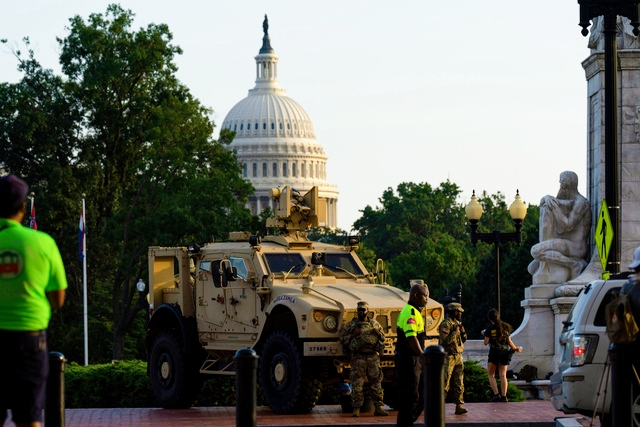U.S. President Donald Trump threatened today, Monday, to declare a national emergency in the capital, Washington, after the city's police refused to cooperate with the U.S. Immigration and Customs Enforcement (ICE) regarding individuals who reside in or enter the United States illegally.
Trump's threats came after Washington Mayor Muriel Bowser informed the federal government that the capital's police would not provide any information to federal agencies regarding undocumented immigrants, which angered the White House and led to a new escalation between local authorities and the federal administration.
In a move preceding this statement, Trump had deployed thousands of National Guard troops and federal agents in the city last month, justifying his decision by the existence of what he described as a "wave of violent crime" threatening the security of the capital.
However, city officials firmly rejected this claim, relying on federal statistics and others from within the city, showing that violent crimes have significantly decreased since their peak in 2023.
* Unique powers for the capital
It is noted that the National Guard forces in Washington, D.C. are directly under the orders of the President of the United States, unlike most other U.S. states where local governments control the guard forces.
This tension comes amid heated discussions that took place in the U.S. House of Representatives last week, which shed light once again on the complex relationship between local authorities in Washington and the federal government, under a unique governance system that makes the U.S. capital heavily reliant on federal institutions' decisions in its internal affairs.
These developments raise widespread debate about the future of local governance in Washington, D.C., especially amid ongoing tensions between the Trump administration and local governing institutions that adopt policies opposing the president's decisions on immigration and security.

